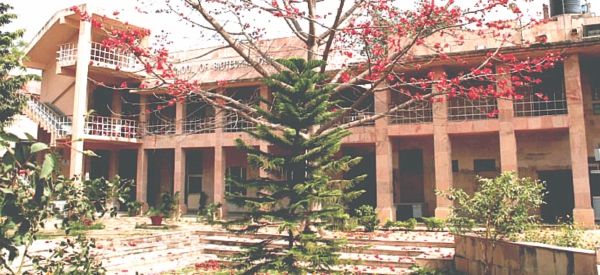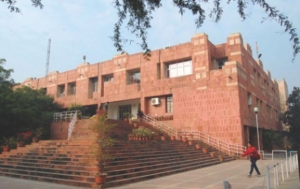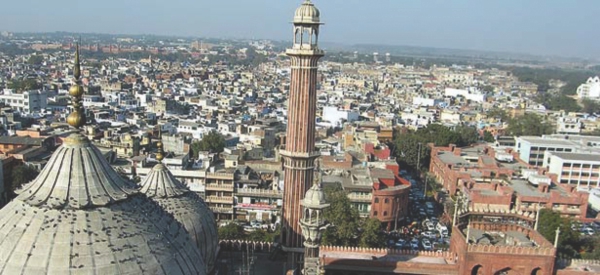| Home - Back Issues - The Team - Contact Us |
 |
| Volume 11 |Issue 50| December 21, 2012 | |
|
|
Musings In Delhi, Remains of the Day Syed Badrul Ahsan Being in Delhi after a pretty long spate of years is cause for a revival of some fine memories. It was to Delhi that Syed Najmuddin Hashim, scholar-diplomat-aesthete, and I once came, to be part of a media conference organised by the Friedrich-Ebert Stiftung in the mid-1990s. I was still young and still too shy to be able to make my presence felt at such gatherings of men and women more experienced and qualified than I. At one of those plenary sessions, Hashim bhai asked me to say something and prove to the participants from other South Asian nations that we in Bangladesh too had a point of view on how the media should go about doing business. I did as I was told. Hashim bhai had boosted my self-confidence to no end.
On that visit, Hashim bhai and I decided to have some ice cream at Nirula's and so off we went to that place. Hashim bhai stood waiting in a corner and asked me to go and get two cones for ourselves. At the counter, the man wanted to know what flavour we wanted. Back I went to Hashim bhai. Well, he said, ask for orange. I did as I was told, only to find that our problem was not yet over. What nature of orange, asked that man. Any kind, I said in exasperation. Finally the man obliged. As we made our way out of Nirula's, Hashim bhai muttered good-naturedly, 'See how difficult it is sometimes to have an ice cream, even when you pay for it?' On that visit, it was my good fortune to meet the veteran Indian journalist Nikhil Chakravartty and his wife Renu. On a chilly November evening, as South Asian journalists gathered at a dinner in Delhi, Chakravartty spoke to me of Bangabandhu, of how they close they were in the times before Partition and of how they met, a quarter century later, in a free Bangladesh in January 1972. On that trip to Delhi, it felt good linking up with some well-known Indian journalists, H.K. Dua and Ajit Bhattacharjea, for instance, and the suave Pakistani politician and man-behind-the-South-Asian-Media-Association, Javed Jabbar.
In Delhi once again, it is a confluence of the historical and personal that I experience. The tumultuous times before Partition, when the leading lights of the Congress and the Muslim League met to try to work out a settlement of the crisis that would soon be upon them, are what I recall. And then come images of the tragic year of 1857, when in the aftermath of the revolt against British rule, much of the city was destroyed by the colonial power. It was in this city that the poet Mirza Asadullah Khan Ghalib lived and breathed. Once the Mughals fell, Ghalib found himself in dire straits. He moved from one colonial office to another to secure a much-needed pension for himself, demonstrating yet once again the poverty which has historically assailed literary men in the subcontinent. Delhi conjures up images of the Mountbattens, of the thousands of Muslims who left it and went off to Pakistan, of the thousands of Hindus who bade farewell to their ancestral homes in Lahore and Rawalpindi and turned up in Delhi to begin a new phase in life. My parents, I am told, travelled to distant (West) Pakistan by train all the way from Dhaka through Delhi to Quetta in the 1950s. I was, I have been informed on good authority, six months old at the time, an age where it is not possible to remember anything. But I do remember, on the basis of historical understanding, that it was Netaji Subhas Bose's ardent desire to storm Delhi and seize it at a moment that would coincide with a declaration of independence for India. That was in 1945 and Bose was not to succeed, part of the reason being that he had aligned himself with the imperial Japanese in his struggle against the British. His was a mission doomed. In August 1947, it was in Delhi that Jawaharlal Nehru spoke of India's tryst with destiny. Seventeen years later, as I recall reading in Pakistan's Dawn newspaper, international figures of renown were to gather in Delhi to attend Nehru's funeral. On that occasion, Pakistan's young foreign minister Zulfikar Ali Bhutto was enchanted by the elegy delivered by Syed Badrudduja, the well-known Muslim Indian politician, at the funeral ceremonies.
Delhi is where the past keeps pace with you. It was to this city that Bangabandhu Sheikh Mujibur Rahman arrived from London in January 1972, to be honoured as the president of a new nation. In my imagination, it is the images of President VV Giri, Prime Minister Indira Gandhi and West Bengal's Siddhartha Shankar Ray welcoming the Father of the Nation at Palam airport that keep coming back. Scenes of Bangabandhu stepping off the airliner bringing him from London did us proud in those days. There was majesty about him. As a nation, we were as tall as he. Delhi is a reminder of the sordid day, back in 1984, when Indira Gandhi was assassinated by men who ought to have protected her from all harm. It is a journey back to 1946, when a wobbly interim government failed to bring Hindus and Muslims together, when the Cabinet Mission plan went up in smoke and a country was torn in two. It was to Delhi that Tajuddin Ahmed came in early April 1971, to ask Indira Gandhi for recognition of the still-born state of Bangladesh; and it was in Delhi that he spurned, a year later, every attempt by Robert McNamara to talk about World Bank aid for Bangladesh. In the tranquil, wooded expanses of Jawaharlal Nehru University, I walk in the fading light of a winter's day. A silken softness is in the air. Pregnant silence swishes down the empty pathways. A squirrel turns up suddenly, looks surprised and goes back into the bushes. And I reflect on the remains of the day, of life as it were. The writer is Executive Editor, The Daily Star.
|
||||
|


